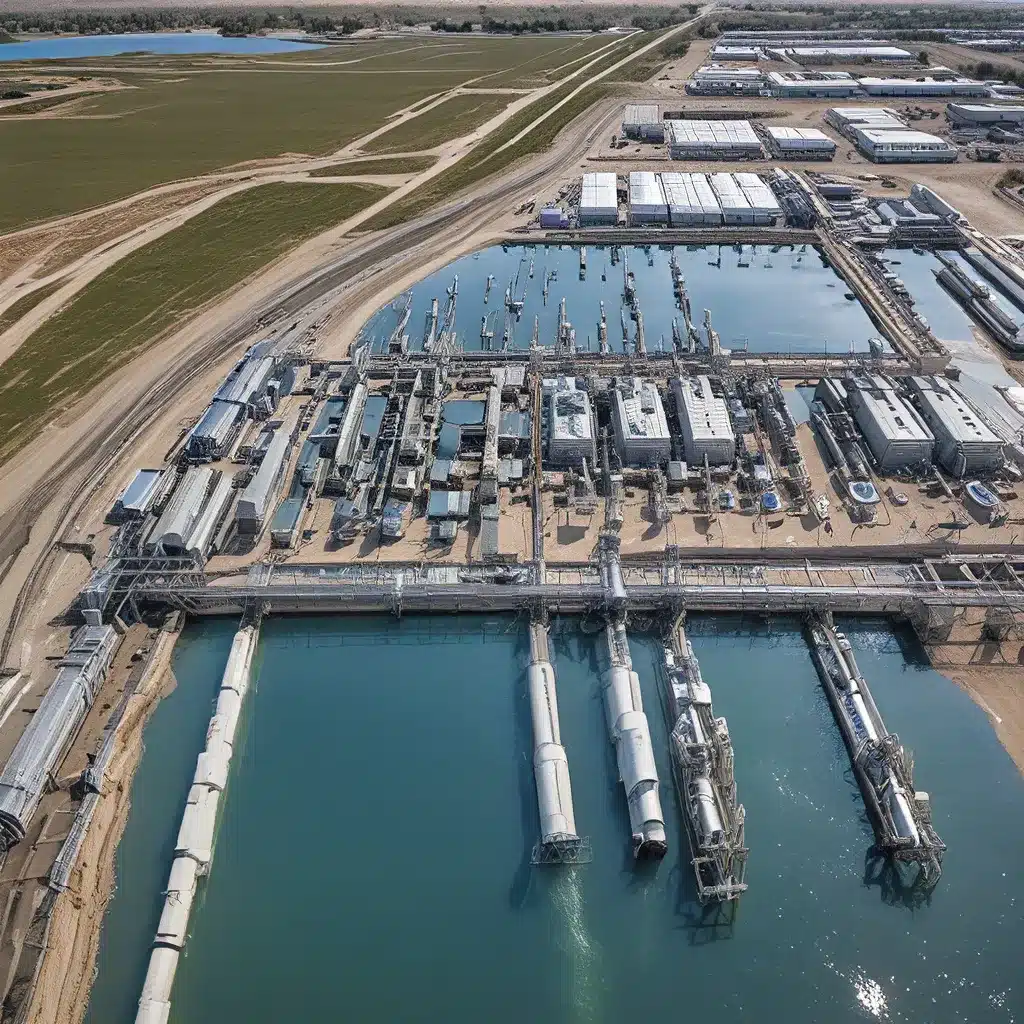
Quenching the Thirst of a Thirsty Planet
As the global population hurtles towards an estimated 9.7 billion by 2050, the race to ensure water security and sustainable management has never been more crucial. The water supply and sanitation (WSS) sector is facing unprecedented pressures, especially due to the impacts of climate change. Governments worldwide are grappling with the daunting challenge of increasing the resilience and sustainability of their water systems.
But where there’s a challenge, there’s also an opportunity. The wave of innovation sweeping through the water industry is nothing short of revolutionary. Breakthrough technologies are reshaping the future of water treatment, offering solutions that not only address the growing demand for clean water but also pave the way for a more resilient and efficient water management ecosystem.
Diving into the Digital Water Revolution
One of the most transformative developments in the water sector is the integration of digital technologies. Internet of Things (IoT) devices and smart sensors are enabling real-time monitoring and control of water systems, empowering utilities to make data-driven decisions and optimize their operations.
Take the WaterOn device, for example. Developed by the company Smarter Homes, this smart metering and leakage prevention system has been a game-changer for apartment buildings in India. By monitoring water consumption and automatically detecting and shutting off leaks, the WaterOn has helped households save an average of 35% on their water bills. Imagine the impact if this technology were deployed across the globe – the potential water and cost savings would be staggering!
But the digital revolution in water goes beyond just smart metering. Data analytics and machine learning are being leveraged to develop advanced water management models, enabling utilities to forecast demand, optimize distribution, and detect anomalies more effectively. Ignitia, a company using these cutting-edge techniques, has been a boon to small-scale farmers in West Africa. By providing hyper-local weather forecasts and climate information via text messages, Ignitia has helped farmers increase their crop yields by an average of 65% and boost their incomes by a remarkable 476%.
Harnessing the Power of Nature
While digital innovations are reshaping the water sector, there’s also a growing emphasis on nature-based solutions. Pioneering companies are leveraging the power of the natural world to address water challenges in innovative ways.
One such example is Oneka, a company that harnesses the energy of ocean waves to power its desalination buoys. These floating units can convert seawater into drinking water, producing up to 10 cubic meters per day without relying on land or emitting greenhouse gases. This technology is a game-changer for small island nations and coastal communities grappling with water scarcity and the impacts of climate change.
Another intriguing innovation is Wonderkid’s mobile management platform, which helps utilities improve their customer service and billing operations. By incorporating data insights and regulatory oversight, Wonderkid’s technology has enabled over 500,000 people in Sub-Saharan Africa to gain access to safer and more reliable water and sanitation services. It’s a prime example of how technology can empower utilities to deliver essential services more effectively.
Collaborating for a Resilient Future
While these breakthrough technologies hold immense promise, their true impact can only be realized through strategic collaboration and support. Governments, utilities, and international organizations must work hand-in-hand to ensure the sustainable implementation and widespread adoption of these innovations.
As Jennifer Sara, the Global Director of the World Bank’s Water Global Practice, aptly notes, “Technology is a critical element that can help support us in improving water and sanitation sectors and strengthening water resources management.” The World Bank has been actively partnering with water innovation accelerators like Imagine H2O to identify and support promising solutions that can address the unique challenges faced by developing countries.
One such collaboration led to the deployment of Drinkwell’s water ATM booths in Chittagong, Bangladesh, providing safe drinking water access to over 5,100 people. And the World Bank’s recent virtual event, Water Online Week, showcased a diverse array of water tech startups, demonstrating the depth and breadth of innovation shaping the future of water management.
Quenching a Thirsty World, One Breakthrough at a Time
As the global population continues to grow and climate change exacerbates water scarcity, the need for innovative solutions has never been more pressing. Fortunately, the water industry is rising to the challenge, with a wave of breakthrough technologies reshaping the future of water treatment and management.
From smart metering and data analytics to nature-inspired desalination and mobile utility platforms, these fluid innovations are poised to transform the way we access, distribute, and conserve our most precious resource. And through strategic partnerships and collaboration, these game-changing solutions can be scaled up and implemented worldwide, ensuring a more resilient and sustainable water future for all.
So, let’s dive in and explore the cutting-edge technologies that are quenching the thirst of a thirsty planet. The future of water is here, and it’s a future of endless possibilities.


